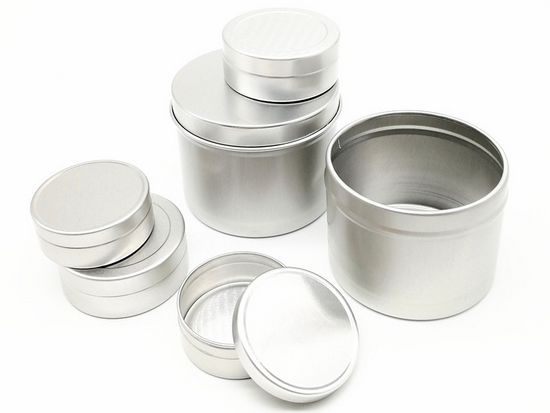There’s a good chance your cupboards are full of unsafe plastic food containers. There are also other storage container options, such as glass, metal, ceramic, silicone, and wooden containers. However, you need to carefully choose safe and secure food storage containers.
Some of the best options for storing food and other consumables are aluminum bottle And glass jar.
In the past, food was packaged in tin-coated containers. Then came the plastic revolution that took the whole industry by storm with its charismatic features. Its low cost pushed tin containers out of the industry, and plastic became the dominant choice for the packaging of almost all different products. However, recent studies have shown that these two materials are just as unsafe as packaging materials, especially in consumable products.
You may wonder why plastic is so unsafe yet so commonly found as a packaging and storage material for all the different consumer products, including food and cosmetics. Plastic packaging is easy to manufacture, cheap to produce, and has a stable supply chain. However, from a safety point of view, plastic can ingest harmful chemicals and other contaminants into your consumables.
This is mainly because BPA is used to manufacture a large part of the plastic packaging used worldwide, and recent studies have found BPA to be a significant cause of fatal disease. In addition, the adverse environmental impact of plastic has also caused many consumers to choose alternatives cautiously.
On the other hand, traditional tin containers also contain BPA treatments when a tin coating is applied during their manufacture. And for the same reasons mentioned above, tin containers are also considered unsafe.
In this blog, we’ll take a closer look at two of the safest and most sustainable packaging materials among the alternatives – glass and aluminum food storage containers and bottles.
Glass Food Packaging
Glass packaging has been here for centuries, and is still used today. It keeps food and other products safe. Glass comes with many benefits such as its design, sustainability and safety. Glass is a natural product, free from chemicals like BPA. In addition, it keeps the stored contents safe from outside air and moisture, which helps to keep the product in its original taste and freshness.
It is also non-reactive with acid content, which is a very desirable quality when considering food storage containers. In terms of sustainability, glass is recyclable, which guarantees its best choice for food packaging.
The versatility of glass materials makes it possible to manufacture a variety of shapes and sizes of food storage containers. You can easily store leftovers inside with some sort of neighborhood air-sealing lid, store consumables in the fridge, and even use them safely in the microwave.
Thus, making it a great alternative to plastic food containers. According to research, it has been shown to be one of the few ingredients that is considered completely safe for food. However, a significant setback facing glass materials is their malleability, which means they break easily on impact.
Aluminum Food Packaging
When we think of storing food, traditional metal jars and cans often come to mind. However, they are not as popular as they used to be. Now the industry is rapidly moving towards safer and environmentally friendly aluminum food packaging containers.
Consumers also like the idea of metal packaging because of its attractive design and sustainable characteristics. You can use it to store food at room temperature and refrigerator temperature.

Aluminum is an excellent material, and it has countless uses. First and foremost, it’s chemical free, so no BPA issues. Aluminum packaging is very light. It does not rust, which makes it the best for storing liquid items for a long time.
It also makes an attractive material in industry because it guarantees low transportation costs. As well as being perfectly safe for food, it’s completely reusable and one of the most sustainable packaging materials. This is aluminum’s main advantage as consumers seek sustainable options.
Because of its versatility and low melting point, aluminum can be easily molded to make a variety of food containers, including aluminum bottles, cans, boxes and more. In addition, its non-rural features add to the security of the products stored in it.
It is also a durable material that overcomes the most significant drawback of glass, so people can use it more often because it doesn’t shatter on impact. Overall, aluminum packaging is widespread in the food and cosmetic industries.
Overall, given the adverse health and environmental concerns of plastic and traditional tin containers, most people now avoid using old-fashioned cans and plastic food packaging. There is a constant surge in demand for safer and more sustainable food containers.
These alternatives may be a bit more expensive than plastic and tin containers, but overall the investment is worth every penny when considering the benefits they bring, as mentioned above.








